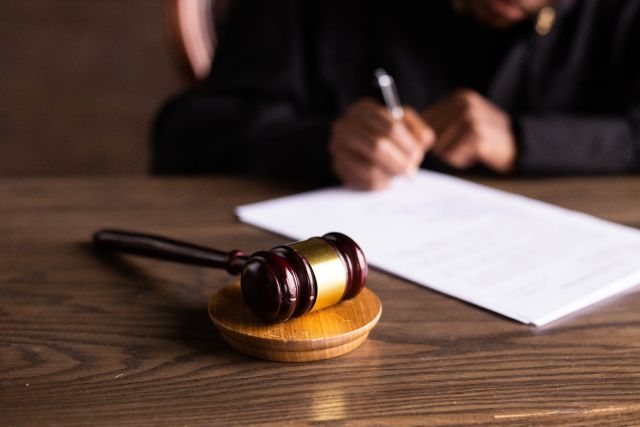Shoplifting
Understanding New York Shoplifting Laws: Protect Your Rights with Richard Hochhauser, DWI & Criminal Lawyer
Learn about New York Shoplifting Laws, penalties, and legal defenses. Richard Hochhauser, DWI & Criminal Lawyer, provides professional guidance to protect your rights in shoplifting cases.
An Overview of Shoplifting Laws in New York
Shoplifting may seem like a minor offense, but its impact on businesses and communities is far-reaching. New York, with its bustling shops and countless stores, sees more instances of shoplifting than you might imagine.
Did you know that New York City has seen a 51 percent increase in larceny offenses from 2017 to 2023? At any moment, you could find yourself facing accusations of shoplifting, making it crucial to understand New York shoplifting laws to protect your rights and freedom.
In New York, shoplifting can be categorized under petit larceny or grand larceny, depending on the value of the stolen property. Petit larceny, for instance, is considered a class A misdemeanor if the stolen items are valued at $1,000 or less. Anything above that can push the charges into felony territory, significantly increasing the legal consequences and penalties.
If you or someone you know faces shoplifting charges, seeking expert legal advice is essential. Contacting Richard Hochhauser, DWI & Criminal Lawyer, can make a significant difference in the outcome of your case, ensuring you receive knowledgeable and skilled representation.
What Is Shoplifting Under New York Law?
Shoplifting in New York involves taking merchandise from a store without paying for it. This can include actions like carrying, hiding, or manipulating items to avoid payment. According to New York Penal Law § 155.25, this crime is classified as larceny.
Larceny itself is defined broadly. It encompasses acts of theft and is divided into different degrees based on the value of stolen goods. Petit larceny is a class A misdemeanor, where the stolen items are valued at $1,000 or less. Grand larceny becomes a felony when the value exceeds $1,000 or involves specific types of property.
Here’s a quick breakdown of relevant legal terms:
- Petit Larceny: Theft of property valued at $1,000 or less (New York Penal Law § 155.25)
- Larceny: The unlawful taking of someone else’s property.
- Grand Larceny: Theft of property valued over $1,000; categorized into different degrees based on the amount (New York Penal Law § 155.30)
Understanding these legal terms is crucial for both consumers and retailers. Knowledge of these terms can help us navigate the complexities of the law.
To secure a conviction, the prosecution must prove your guilt beyond a reasonable doubt. Common evidence used in these cases includes:
- Video surveillance showing the act
- Eyewitness testimony from store employees or customers
- Physical evidence, such as the stolen items found on the accused
- Receipts or lack thereof as proof of purchase
Understanding what constitutes shoplifting and the related laws helps us all behave responsibly and avoid legal issues.
Recent Developments in New York Shoplifting Laws
Recent changes in New York shoplifting laws focus primarily on organized retail theft. The state has implemented new policies to address these crimes more effectively.
Governor Kathy Hochul announced significant initiatives to crack down on organized retail theft. These initiatives are part of the FY25 State Budget agreement, which aims to protect frontline workers and bolster law enforcement capabilities.
Mayor Eric Adams also introduced a plan to combat retail theft in New York City. His approach includes maintaining a database of serial offenders and enhancing security measures in retail areas.
These new laws and policies empower both law enforcement and prosecutors. By doing so, they aim to reduce repeat offenses and protect businesses. For instance, under these new policies, repeat offenders can face stricter penalties, and businesses may receive more support in securing their premises.
The impact of these changes is expected to be significant. Future shoplifting cases could see quicker resolutions and stiffer penalties for repeat offenders.
Law firms like ours stay updated on these legal developments to best serve our clients. Understanding these changes helps us provide accurate and current legal advice. By keeping abreast of these updates, we ensure that our clients are informed about their rights and the potential consequences of shoplifting charges.
Penalties for Shoplifting in New York
In New York, shoplifting is treated as a larceny offense. The penalties depend on the value of the stolen merchandise.
If the value of the items is $1,000 or less, the offense is categorized as petit larceny, which is a Class A misdemeanor. This can result in penalties of up to 1 year in jail and/or fines. Repeat offenders face harsher penalties. Courts may impose stricter sentences for those with prior convictions.
For items valued over $1,000, the charge escalates to felony grand larceny, which can range from a Class E felony to a Class B felony, depending on the value. Penalties for grand larceny can vary significantly: a Class E felony may result in up to 4 years in prison, while a Class B felony can lead to 5 to 25 years in prison.
Let’s not forget that shoplifting convictions have severe consequences. A shoplifting conviction affects more than just fines or jail time. It can create barriers to employment and education. Many employers perform background checks, and having a misdemeanor or felony can limit job opportunities.
It’s crucial to understand the laws and seek legal advice if facing charges.
Defending Against Shoplifting Charges

When facing shoplifting charges, lack of intent is a common defense. We argue that the accused did not intend to steal the item but may have forgotten to pay. Mistaken identity is another potential defense. Sometimes, someone may be wrongly identified as the shoplifter.
Each defense strategy must be tailored to the specifics of the case. It’s important to assess all the facts thoroughly before deciding on the best approach.
Hiring an experienced attorney, like Richard Hochhauser, DWI & Criminal Lawyer, can significantly improve the chances of a favorable outcome.
Get Superior Legal Representation Today From Richard Hochhauser, DWI & Criminal Lawyer

When facing shoplifting charges, having a knowledgeable attorney can be crucial. A lawyer who understands the complexities of the law can make a significant difference in the outcome of your case.
Richard Hochhauser, DWI & Criminal Lawyer offers extensive experience in criminal defense.
Why choose us?
- Experienced Leadership: Richard Hochhauser brings extensive trial experience as a former prosecutor in New York.
- Proven Results: Successfully helped hundreds of clients achieve favorable outcomes in DWI and criminal cases.
- Specialized Knowledge: Expertise in DWI defense, with specialized training in detection and prosecution.
- Recognized Excellence:
- “Super Lawyer – Rising Stars” (2018)
- Top 40 Under 40 Criminal Defense Attorneys
- Perfect 10.0 rating on Avvo
- Strong Advocacy: Builds robust defenses by anticipating prosecution arguments.
- Dedicated Service: Serving Nassau County, Suffolk County, Queens, and New York City.
We encourage you to reach out for a free consultation. Discussing your case with us can help you understand your options and build a strong defense.
Defend Your Future Now: Schedule a Free Consultation

Facing criminal charges in Nassau County requires experienced legal representation to protect your rights and secure the best possible outcome. Don’t navigate the complexities of the legal system alone. Your future is too important to leave to chance—Contact Hochhauser Criminal & DWI Defense today to schedule a free consultation and receive diligent criminal defense representation.
FAQs
while there are many well reputed criminal defense lawyers in Nassau County, finding the right one for you and your case can be daunting. Look for criminal defense attorneys with experience handling your specific charges. Additionally, consider their reputation within the legal community through testimonials, awards, and reviews. You may also need to assess their ability to provide personalized attention to your case.
The cost of hiring a criminal defense attorney in Nassau County can vary based on factors such as the complexity of your case, the attorney’s experience, and the legal services required. Make sure to discuss the fees and payment structure upfront to avoid unpleasant surprises.









